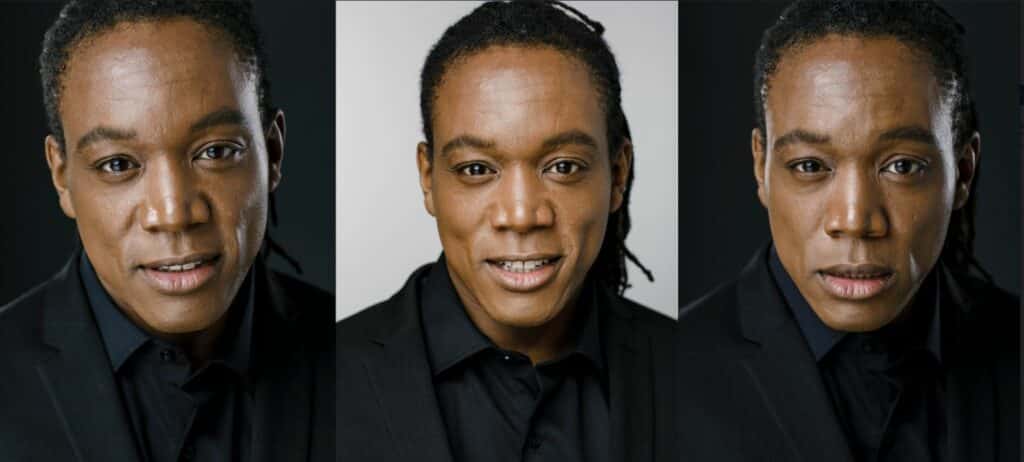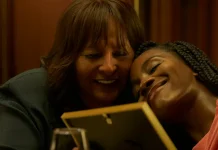
*Atlanta-based filmmaker Darion D’Anjou is paying it forward by helping indie filmmakers reach the widest possible viewership across social media.
D’Anjou founded the One Minute Film School, a challenge that calls on indie filmmakers around the world to create one-minute films that are eligible for a cash prize. In addition to the official website and YouTube Channel, D’Anjou runs a popular room on the Clubhouse app, where filmmakers and content creators come together to network and share their experiences, as well as offer tips, and collaborate on the challenge.
D’Anjou tells EURweb that the challenge is a low-budget, skill-building opportunity for indie filmmakers seeking to create a reel or those who simply want their work to be seen. It’s also a great way to hone your craft before tackling a short film.
“So now your films are out there, but also let’s say now you’re going to go make your short film, and you’re trying to recruit this particular actor, right? And they’re like, “Oh, go show me some work that you’ve done,” well, you can lead them to your one-minute films, because there is no better currency as far as earning collaborators than them actually seeing your work,” D’Anjou tells us.
“Because the reality is people don’t really watch much more than one … I mean, I could send some people short films, and I can barely get them to click on the link and actually watch a short film. But if they see that it’s only one minute, you have a way higher percentage chance that somebody will actually spend a minute to watch your stuff,” he continues.
“So that is kind of why one-minute is what more valuable in today’s day and age where people are very, very time-limited, more than a minute they’re not going to watch anyways, so what I’m planning is, one-minute could actually move your career faster than other formats, because the one-minute format, less than one minute, just has become so much … TikTok has made it a big deal. People are used to watching content that’s really quick, and they make the decision whether they like it or not within that 15, 20 seconds or whatever.”
Check out the rest of our conversation with D’Anjou below. If you’re on Clubhouse, stop by the One Minute Film School on Sept. 11 at 1 pm EST to check out the awards ceremony for the current challenge.
READ MORE: Steve Martin, Martin Short and Selena Gomez Are Obsessed with True Crime in New Hulu Series
View this post on Instagram
Talk about the inspiration behind the One Minute Film School.
Darion D’Anjou: One was that it’s in my nature to be sharing, whatever it is I learn, experience, to share that with others along the way. And I sort of have been having impostor syndrome about that, because I was like, “Well, I haven’t had a feature film be released by a major studio,” and all the things that I haven’t done. But then what my mentors were saying to me, “But just look at all the things that you have done.”
And so what they were saying, “What you’ve done in a short amount of time is a lot, and you’ve got to realize that you can add value to people’s journeys now. You don’t wait until you’ve reached your big definition of what being arrived is, because that thing will never come.” And these are some of my mentors who have feature films out there, who what I would consider pretty much on top of the world in the film industry, and they’re basically saying they don’t feel like they’ve arrived, you get what I mean? So it’s pretty interesting to … There’s always a perspective on it.
Okay, so that’s the first step. Which they were saying, “Yeah, if you already do it, you might as well just go ahead and double down on it and formalize on it, because you’ll be surprised how much value it will add, even as you are along your journey.” So that was one.
And then the second thing was that film is a second career for me, and when I got into it, I’m a very ambitious person, and so I tend to tackle things with the full ambition right off the bat, and I bump my head and make a lot of mistakes. One of those things was just rushing right into it thinking I could make a feature film as my very first project, not only a regular feature film, but a science fiction feature film with heavy visual effects, and all this other stuff.
And so that was my first project. I mean, I did a couple of music videos to get my feet wet a little bit, but then my first narrative project was a feature-length film, which I wrote and I directed. And I bit off way more than I could chew, I mean, way more than I could chew. And so what I really quickly learned from that experience was that, and then looking around at other filmmakers around me do similar things, they’ll write for a short film and be like, “Okay, well, we’re going to go to Sundance, we’re going to do this, we’re going to do that and the third,” and then they are faced with a lot of disappointment when they realize there are a lot of steps, there are a lot of skills that need to be put together to put together the kind of work that will move your career in a significant way.
And so I was like, “All right, well, what could I do to tell people?” If I could go back to let’s say, 2015, ’16, which was when I was really getting started, what would I do differently? And what I would do differently is I would make a bunch of one-minute films before I ever even considered doing even a five-minute short, or any kind of feature, any of that. I would make a number of one-minute films and just hone my craft. And then, when I know I am a badass, then I would maybe move into whatever other projects that I can, knowing that I can kill it pretty much every time, so that was kind of the inspiration for that.
For the most part, you run the One Minute Film School via Clubhouse.
So that was totally organic. That’s the universe, 100%, there was no planning around that. Basically, I did make a pledge to myself in 2021, at New Year’s, that I would kind of make more of a commitment to social media because we all know how much of a difference it makes. It’s one thing to build your craft, have your skills, but people need to know about it, and that’s the multiplier that actually gets you all the work. So I’d been doing pretty well up to that point, but I was like, “2021 is the year where I think I’ll go ahead and pay more attention to social media,” which I had been pretty much neglecting.
So New Year’s was my pledge to do it, and literally that same day, of literally January 1st ’21, I got like four or five pings and invites to people who were on Clubhouse saying, “Come on, join this room, do all this.” So I was like, “I guess that’s the message from the universe, let me go ahead and jump on this thing.” And as soon as I got on, January, I was hooked. Within a few days, I saw that this was where I needed to do because people were going onstage, asking all these questions, a lot of the same questions, and it’s like thousands of people and they’re all asking these questions.
I was like, everything that mentors have told me, Clubhouse was showing me that was a desperate need. Because yeah, people who are, “I’m about to shoot my short film next week, what camera should I use?” And I’m like, “Oh my God,” you know what I mean? It’s just like, these people are literally like lemmings jumping off a cliff, and they need help. They need help. And so the university was basically telling me that Clubhouse was going to be that medium, and I just went ahead and just listened to what the universe was telling me.
When you announced the One Minute Film School on Clubhouse, was the response pretty immediate?
Immediately, yeah. It was really, really engaged, and they liked having a format where it was like set days, and people were asking me questions, and you could just tell they were getting value, and the rooms just kept growing. So I was like, “All right, well, this is definitely the right thing to do, so let me just keep doing it.”
Did you create a specific curriculum for the One Minute Film School?
I had a curriculum in my head based on my experiences, and basically, all my answers that I was giving to people in the rooms prior to setting up the school were along those same lines, because I was always saying the same thing, it’s like, “Oh, you need to spend a lot more time in pre-production, you need to not go casting your actors just the second that you have an idea,” just all this other stuff.
And also, I have been in a fortunate position to have a little bit more access to kind of how things are done and how people are making successful films, and I could see that people don’t know that, that information is not as readily available. Clubhouse actually helped me kind of formalize it, because it was like, “Okay, these are kind of the same consistent answers, let me go ahead and write this up in a formal way so that some of the people who need that structure, to be able to see that structure, go to an actual PDF, that’s not a book, because not everybody has the time to read a whole 100-page book or whatever, but it’s like a few pages, seven, eight pages of PDF, they can read it and they will literally know all the steps of how to make films. Like period, not even one-minute films, just how do you make films, period. If you follow those steps, you will make good films, period. It’s just not possible not to make a good film if you actually follow those steps. You can make a good film without following all of those steps, but you cannot make a bad film when you follow all the step.
View this post on Instagram
Who can participate in the One Minute Film School? Is it open for Americans only, is it a global challenge?
It is absolutely global, both the tuition for the school and the entry for the contest are based on social media currency, so I’m not doing this for any money. But what I do say is that as far as paying tuition, the way you pay tuition is go watch my films. Give me that back, if you feel like you’re getting value out of the school, and the fact that I’m doing the competition, go watch my short films, comment on them, and go to social media, comment on my stuff, support in that way, because that’s a way of paying me money. That is actually a way of paying me money, to be honest, because my YouTube channel’s monetized. I have got over two million views on there, and I have regular revenue that comes in from that. It’s not any revenue that I would pay any bills with, but it is a monetized channel. So in fact, by commenting on my stuff, watching my stuff, generating views, you are actually putting money, some level of money into my pocket.
But more importantly, I want to convey to the students that social media currency is valuable, it’s more valuable than money, to be quite honest. Because once you have your social media currency, let’s say as cashflow, right, you have a significant income of social media currency flowing into all your different social media, that will translate into your whole entire career. That will translate into money for life. And so you could be like, “All, right, well, would I rather have $1000 right now, or would I rather have an additional 10,000 views?” Well, right now, honestly, I would do a lot more with the 10,000 views. It’s going to be a lot more valuable to me than $1000. I mean $1000, man, I’ll blow that in Atlanta in … You know what I mean? I’ll tell Lamar Odom how quick you can blow $1000, right? And then it’ll be gone.
But that social media currency, when you have eyeballs on your work, and those numbers, that’s something that everybody else will always see. Agents, producers, collaborators, everybody who goes to your work will see that you are making stuff that people are actually watching, and that is way more valuable than any cash that’s just going to end up being blown on some bullsh*t, on some Frappuccinos, fixing your tires, putting gas in your car, whatever it’s going to get blown on, but it’s going to get blown, and it will not have that significant of an impact on your life as your work being out there.
So that’s really the reason I say that, is to start to kind of get people’s minds around the fact that that is of value. The tuition to be a part of the school, participate in the competition, there’s no money that needs to be exchanged, just social media currency.
Click here to learn more about the One Minute Film School challenge.
We Publish News 24/7. Don’t Miss A Story. Click HERE to SUBSCRIBE to Our Newsletter Now!





